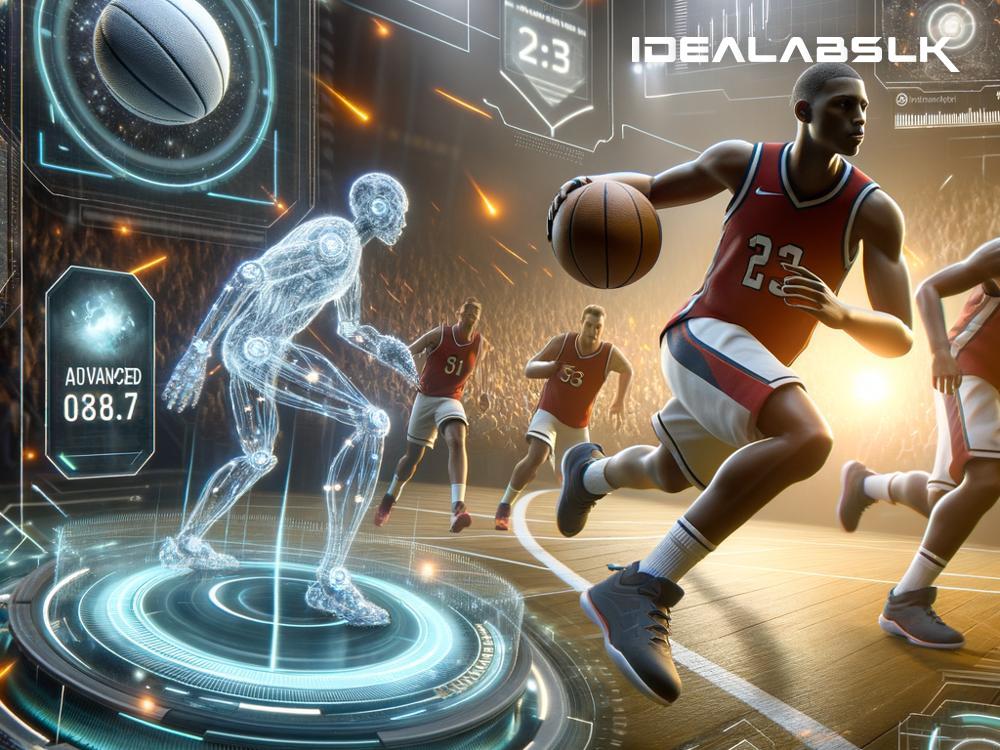The Future of AI in Sports Video Games: How Machine Learning Will Improve Athlete AI and Tactics in 2025
Imagine you're playing your favorite soccer video game in the year 2025. You're at the final match, and the crowd's energy is electric, even though the stadium you see is inside your gaming room. Your star player maneuvers around defenders with an uncanny realism that blurs the line between the digital and the physical world. This isn't just a dream scenario but a sneak peek into the future of sports video games, all thanks to the magic wand of technology: Artificial Intelligence (AI) and Machine Learning (ML).
The Game Changer: AI and Machine Learning
At its core, AI in sports video games isn't new. But the ways it's evolving are nothing short of mind-blowing. Imagine AI as a super-smart assistant coach that learns from every match, every goal, and every tackle. Then, there's ML, which can be thought of as this assistant coach studying game tapes to come up with better strategies. Together, they're set to revolutionize how athlete AI behaves and how tactics unfold in your favorite sports video games by 2025.
Realism Like Never Before
One of the most significant impacts of AI and ML will be the unprecedented level of realism in player behavior. Traditionally, video game players operated under a limited set of instructions, making their moves somewhat predictable. Fast forward to 2025, and AI-driven athletes can learn from their in-game experiences, adapting and responding just like their real-world counterparts. Whether it’s making a split-second decision to pass the ball or taking an impossible shot, AI will make these digital athletes think and react more humanly.
Dynamic Game Environments
In 2025, ML won't just stop at player behavior. The environment, the crowd sounds, and even commentaries will adapt in real-time, creating a unique atmosphere for every game. Machine learning algorithms will analyze countless data points — from player performance to in-game events — to generate authentic crowd noises and dynamic commentary, enhancing the immersive experience of sports video games.
Advanced Tactics and Strategies
Tactics and strategies in sports video games have often been limited by the static nature of programming. Not anymore. With AI and ML, in-game strategies will evolve. Coaches and players within the game will learn from past successes and failures, adjusting their approach to each match. This means that as a player, you'll need to stay on your toes, adapting your game plan to outsmart an AI that learns and evolves, offering an endlessly challenging and engaging gameplay experience.
Training and Development
Here’s an exciting spin: AI won't just improve the virtual athletes; it can also make you a better player. By analyzing your gameplay style, strengths, and weaknesses, AI can offer personalized training programs, tips to improve your game, and even suggest strategies tailored to your playing style. This virtual coaching could revolutionize how players engage with sports video games, making the learning curve smoother and the gameplay more enriching.
What Does This Mean for Players?
For gamers, this revolution means a future where sports video games aren't just about pressing buttons faster or memorizing patterns. It's about thinking, strategizing, and growing — both in-game and as a player. You'll experience the thrill of facing opponents who think and adapt, offering a level of challenge and satisfaction that static AI can never match.
Challenges and Ethical Considerations
As exciting as these advancements are, they're not without challenges. There are technical hurdles in developing AI that's sophisticated yet efficient enough to run on standard gaming systems. Moreover, as AI becomes more advanced, ethical considerations about data privacy and the psychological impact of ultra-realistic games become more pertinent. Navigating these challenges will be crucial to ensure that the future of sports video games is not only advanced but also responsible and inclusive.
The Road Ahead
The road to 2025 is paved with possibilities. As AI and machine learning technologies advance, we're looking at a future where sports video games are no longer just games but immersive, dynamic experiences that mirror the unpredictability and excitement of real-world sports. Sure, there will be challenges to overcome, but the goal is clear: to create virtual sports experiences that are as rich, varied, and engaging as the sports they simulate. The future of sports video games is bright, and 2025 is just the beginning.

